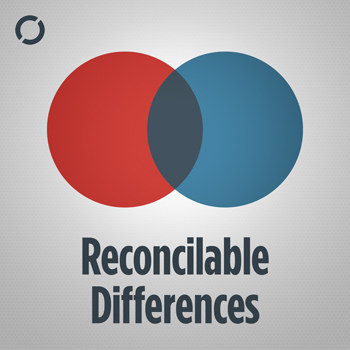Support this show
Get an ad-free version of the show, plus a monthly extended episode.#93: Forty Gronks
December 13th, 2018 · 108 minutes
John interrogates Merlin about his heartbeat, and Merlin reveals he’s conducting a personal longitudinal study.
This episode of Reconcilable Differences is sponsored by:
- Squarespace: Make your next move. Enter offer code DIFFS at checkout to get 10% off your first purchase.
- Simple Contacts: Contact lens prescriptions from home: Use offer code DIFFS20 for $20 off your first order of contact lenses
- Kane 11: Premium socks in precisely your size. Get 20% off your first order.
Stream this episode
Links and Show Notes
This week kicks off with a dive into the sad world of middle-aged injuries and afflictions. John missed a step, and Merlin experiences a grave sweatpant malfunction. Does it always take this long to heal, and why do people keep putting things in other people’s areas?
John still has concerns, and the problem of unreliable podcast statistics comes up. John tracks the nutrition stats for his fad diet in his head.
Self-knowledge and mindfulness are explored. Merlin has the receipts on Mr. Davison’s butts, and pretty much everybody used to smoke.
At 1:24:28, the spoiler horn fires off for a discussion of the Amazon Prime Video series, Homecoming.
(Recorded on Tuesday, December 4th, 2018.)
Credits
- Audio Editor: Jim Metzendorf
- Admin Assistance: Kerry Provenzano
- Music: Merlin Mann
- The Suits: Stephen Hackett, Myke Hurley
Homecoming (TV Series 2018– ) - IMDb
Amazon.com: Watch Homecoming - Season 1 | Prime Video
Exist · Understand your behaviour.
Track everything together. Understand your behaviour.
Gyroscope · The new OS for the human body
A new operating system for the human body
List of smoking bans in the United States - Wikipedia
The Information Crisis with David Roberts
How can you be sure that the things you know are true… are actually true? We have access to more information than any humans in history but we can't process it on our own. In fact, almost all of what we know comes from others. We come to rely on people and institutions to tell us what to believe and not to believe. And it turns out there are huge consequential differences in how Americans form those relationships, relationships which serve as the building blocks for how we shape our own views of the world. So what happens when someone tries to manipulate that trust? If you ask David Roberts, you need only look at the current conservative movement to get your answer.
Dunning–Kruger effect - Wikipedia
In the field of psychology, the Dunning–Kruger effect is a cognitive bias in which people of low ability have illusory superiority and mistakenly assess their cognitive ability as greater than it is.
Off-by-one error - Wikipedia
An off-by-one error (OBOE), also commonly known as an OBOB (off-by-one bug), or OB1 error is a logic error involving the discrete equivalent of a boundary condition. It often occurs in computer programming when an iterative loop iterates one time too many or too few.
